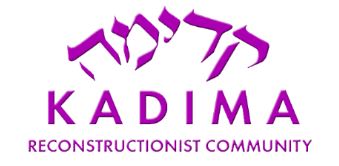In the chorus of #metoo voices we are reminded how many of us have been grabbed, groped, threatened, blocked, and blamed. The strength of our voices is not merely in its number, but in the keen awareness we bring to our own situations, recalling James Baldwin's statement that “The victim who is able to articulate the situation of the victim has ceased to be a victim: he or she has become a threat.” Let us be threats now so that our children will not have their own #me too stories to add to our own.
The sexual harassment stories exploding in the media focus on the perils in the workplace. From an "oy vey" perspective, I wish the most prominent predator of the moment were not such an obvious Jew. But it serves as a useful reminder that Jews, too, push the levers that patriarchal power makes available to some of us. Let us be threats even when the perpetrators are Jews, even when they make movies, even when they support Planned Parenthood and Black Lives Matter.
Where can we find sanctuary? Though I have shared my #metoo story (long form) and want to listen, support, plan, fight, topple, and create, I also get tired. I stress eat popcorn and take a lot of baths. For me, now, my sanctuary is my home. Shalom bayit, peace in the home. Not "keeping the peace" by diminishing ourselves. Shalom bayit as a sanctuary, and a separation, from the violences we do to each other "out there."
Shalom bayit is a blessing and a privilege. For so many of us, our #metoo stories feature not our bosses but our lovers, our spouses, and our families. We're nearing the end of another Domestic Violence Awareness Month and my hope is that we can talk about creating and sustaining a brave shalom bayit. What does this look like? How can we make it so? When do we hunker down to keep our sanctuary tight and well-fortified? When do we open our homes, sukkah-style, to invite in and radiate peace?
Karen Rosenberg is a teacher and writer based in Seattle, Washington. She directs the Writing and Communication Center at the University of Washington Bothell. Karen writes personal essays, articles, and short fiction. To learn more about Karen, or read more of her work, please visit her blog: Write and Learn.


 RSS Feed
RSS Feed